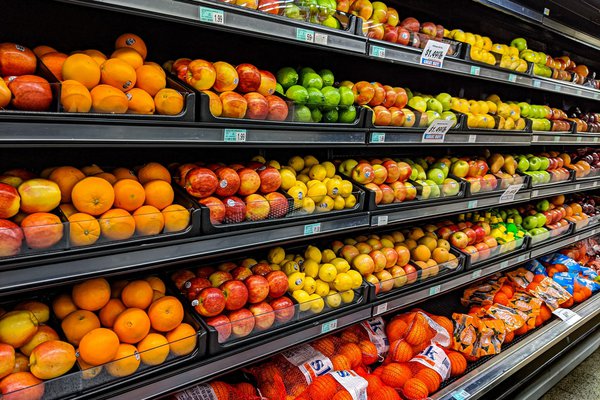ida is a relatively new French startup that wants to work with supermarkets and grocery stores to optimize new orders for fresh products, such as fruits, vegetables, meat, poultry and fish. The startup recently raised a $2,9 million (€2,7 million) seed round from Frst, Daphni, Motier Ventures and Kima Ventures.
Right now, grocery stores rely primarily on order sheets with a large number of columns representing the reorder schedule. These error-prone tables cause both food waste and shortages. Supermarkets are losing money or leaving potential revenue on the table.
“The vegetable manager will take these sheets of paper and a pen. They will then review the actions line by line, reference by reference. Then they'll make some guesses and say, 'Okay, I have a good feeling about eggplants right now.' The weather is pretty good today, so we're going for four two-kilogram boxes of eggplants,'” co-founder and CEO Mateo Beacco told me.
Of course, it's not 100% guesswork, as experienced people will look at past years to find some trends that allow them to guess whether it's time to order more strawberries. But in recent years there has been more turnover in these jobs. Even for people who have worked at the same grocery store for a year, it's hard to be accurate every day.
That's why Ida wants to change this process by giving the right tools. Ida is a tablet app connected to a sales forecasting algorithm that guides professionals when it's time to reorder some fresh produce.
Ida is starting with vegetables and fruits, but could soon expand to other products, such as meat and fish. By focusing on perishable products, Ida is addressing a neglected part of supermarket inventory, as it is quite easy to predict how many boxes of cereal you have in your store thanks to barcodes and connected points of sale. Or, as Beacco said, “SAP gives you a media.”
Behind the scenes, Ida doesn't just watch what happens at the points of sale because it doesn't work well with vegetables and fruits. Instead, the company generates a probabilistic inventory that takes real-life scenarios into consideration.
“With probabilistic inventory, my cucumber sales are mixed with my organic cucumber sales because when you buy organic cucumbers, the cashier counts them as non-organic cucumbers,” Beacco said. Another example: You can probably keep potatoes for a while, but cherries go bad very quickly.
This way, instead of having to count how many cucumbers you currently have, Ida can give you an approximate number of the cucumbers you have in your store. Of course, if something seems seriously wrong, staff members can correct those inventory numbers.
Second, Ida takes into account over a hundred different parameters combined with at least three years of sales data to forecast demand. Ida analyzes weather conditions, seasonality, prices, other grocery stores in the area, special offers, among other data.
Third, Ida uses this forecast data to generate her next orders. And stores can set up safety stock so they know for sure they won't run out of a specific item (without over-ordering).
“As I mentioned before, eggplants are ordered in 2-kilogram boxes. We then face a mathematical problem of optimization under constraint. “I order in 2kg increments, my shelf holds 5kg, and we're going to try to take all the data into account to say we need 4 boxes, not 3 or 5,” Beacco said.
Ida does not process orders on her own. Instead, staff members can review everything and change some things manually. Right now, the startup estimates that 70 to 75% of Ida's suggestions are accurate and are not manually modified by grocers. Once this task is completed, Ida generates order forms for the central purchasing office, but also potentially for local producers, as Ida can mix and match suppliers in her tablet app.
In many ways, Ida is just getting started. Other young startups are tackling this vertical, such as tryguac in the US. It will be interesting to see if grocery stores adopt these software solutions to manage fresh produce at scale. But it seems like a no-brainer for supermarkets to improve their bottom line and reduce their overall impact on the environment.




